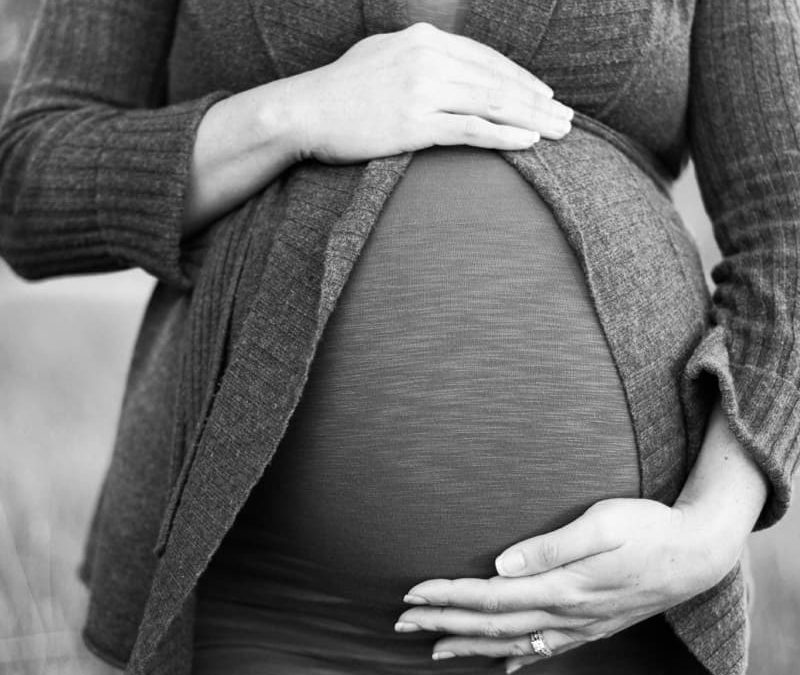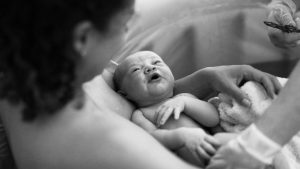Fortunately when I had my first baby, birth breathing was everything; it was the most important component in any childbirth education class.
The pre-natal class teacher, for the course we attended, was quite disciplined in following the same format every evening of 10 minutes of breathing practice at the beginning of each session and 10 minutes at the end.
By reinforcing the breathing at every session those who kept up their practice and really took it on board were able to use it during their labors and it made such a difference to minimizing the use of drugs and medical intervention.
Fortunately, I had also already completed a couple of years of Yoga, and a relaxation course so I was pretty well practiced in the art of breathing slowly and calmly. It was easy for me to be open to what our birth educator was trying to get across to us. If Mindfulness birth preparation courses had been available I would have been delighted to attend.
During my first decade of teaching CBE (Childbirth and Parenting) courses relaxation breathing was routinely demonstrated and taught, and then the tide of fashion turned and it became “silly” to teach breathing and many educators were encouraged to explain to course participants that they didn’t need to come to classes to learn how to breathe because they already knew how to breathe!
About 15 years or so ago…
The President of the Childbirth Educators Society (who by the way had never had a baby LOL) wrote in the national journal and also presented at National Conferences exclaiming…
“We don’t need to teach breathing in classes anymore because it’s a waste of time, women already know how to breath”…
So, of course, many childbirth educators followed her opinion and stopped teaching relaxation birth breathing in their classes, both hospital and independent classes, followed that lead… without thinking it through for themselves properly such as yes women do know how to breath on a daily basis but put them into labour with zero preparation and you’ll have a different story, especially if they are scared, anxious, worried, frightened and their partner support person is just as scared and unprepared. Seems pretty obvious when thought through doesn’t it?
Do you want to know what happened next?
Our Epidural rate across Australia skyrocketed!
No surprises there… if you take away the most important empowerment tool for women in labor (by failing to teach them the breathing techniques) it’s just like ripping the rug out from under their feet isn’t it?
You might wonder what’s wrong with an escalating epidural rate? Isn’t that a good thing? Women not feeling anything, being numb from the waist down, unable to move around, having a rest, not doing anything, just laying still in a hospital bed with monitoring, a bladder catheter, a drip in the back of the hand, you know just like we see on television that’s normal isn’t it? Well according to the research based evidence along with that scenario is the increased likelihood of requiring more assistance such as c.section or forceps and episiotomy.
The knock on effect of that one person’s opinion became one of the most extraordinary situations of influence to occur in Maternity History in Australia.
This is clearly reflected by the maternity statistics across Australia held by the varying Dept of Health in each state.
Well we have certainly come a long way forward from there, to the current day where it has been shown to once again be a very important skill for labor.
Because when a woman breathes calmly and slowly she reduces her stress and Adrenaline and instead experiences a good steady increase in Oxytocin.
But there is more to this than just breathing isn’t there?
Yes, it has to do with attitude and expectancy. Like everything else in life.
If a woman chooses to expect or believe all those horror stories then chances are that will increase her fear which in turn increases her tension which will increase the pain.
Dr. Grantly Dick-Reid’s “fear-tension-pain” theory.
It makes sense doesn’t it?
At an intuitive level, we are very aware of the way our thinking will affect our physiology. Our thoughts affect our emotions; our emotions will trigger chemical messengers in the brain which might be favorable or unfavorable.
Let me give you an example, lets say you and I have met for a cuppa in a cafe and we are catching up on old times.
I ask you what you are doing for dinner tonight and you say you are going to the Mexican Restaurant in the city.
I suddenly look horrified and ask if you have heard that the Dept of Health had shut them down for several weeks last year due to a filthy kitchen and several reports of severe food poisoning… what do you think?
How do you feel?
Let’s just say you still decide to go along to the restaurant for dinner… are you happy relaxed and enjoying yourself? I don’t think so!
I expect that with your new concerns about the restaurant you will be “worried” and this will create an “adrenaline” surge which will affect your appetite – won’t it?
Hmmm, let me give you another example, let’s say once again we meet for lunch but this time we both have busy afternoon schedules and select to meet early let’s say 11.30am for lunch.
Now you might be feeling still well satisfied from breakfast and not actually hungry at all… until you get to the lovely little Italian restaurant with the red and white check tablecloths, the aroma of garlic and onions being sautéed in the kitchen.
Mmm smells beautiful doesn’t it?
We sit and look at the menu you start thinking about what you’d like to eat and imagining what the garlic bread and lasagne tastes like, next thing your thoughts have created a physiological effect of causing the mouth to water, your stomach to growl and you frown wondering where the waiter is – yes?
What we think affects our feelings creating a physiological effect.
Seems fairly simple?
How do we take this knowledge and use it to benefit woman and their partners as they prepare for birth?
This is what the course is about; helping people reverse the negative cycle of previous learning’s, experiences, thoughts and to create a special and positive birth experience.
This beautiful course will be one of the most uplifting, inspiring, interesting, effective experiences for you and your partner to share together which will enhance your pregnancy journey.
Pregnant couples love courses taught by Julie Clarke in Sylvania Sydney





